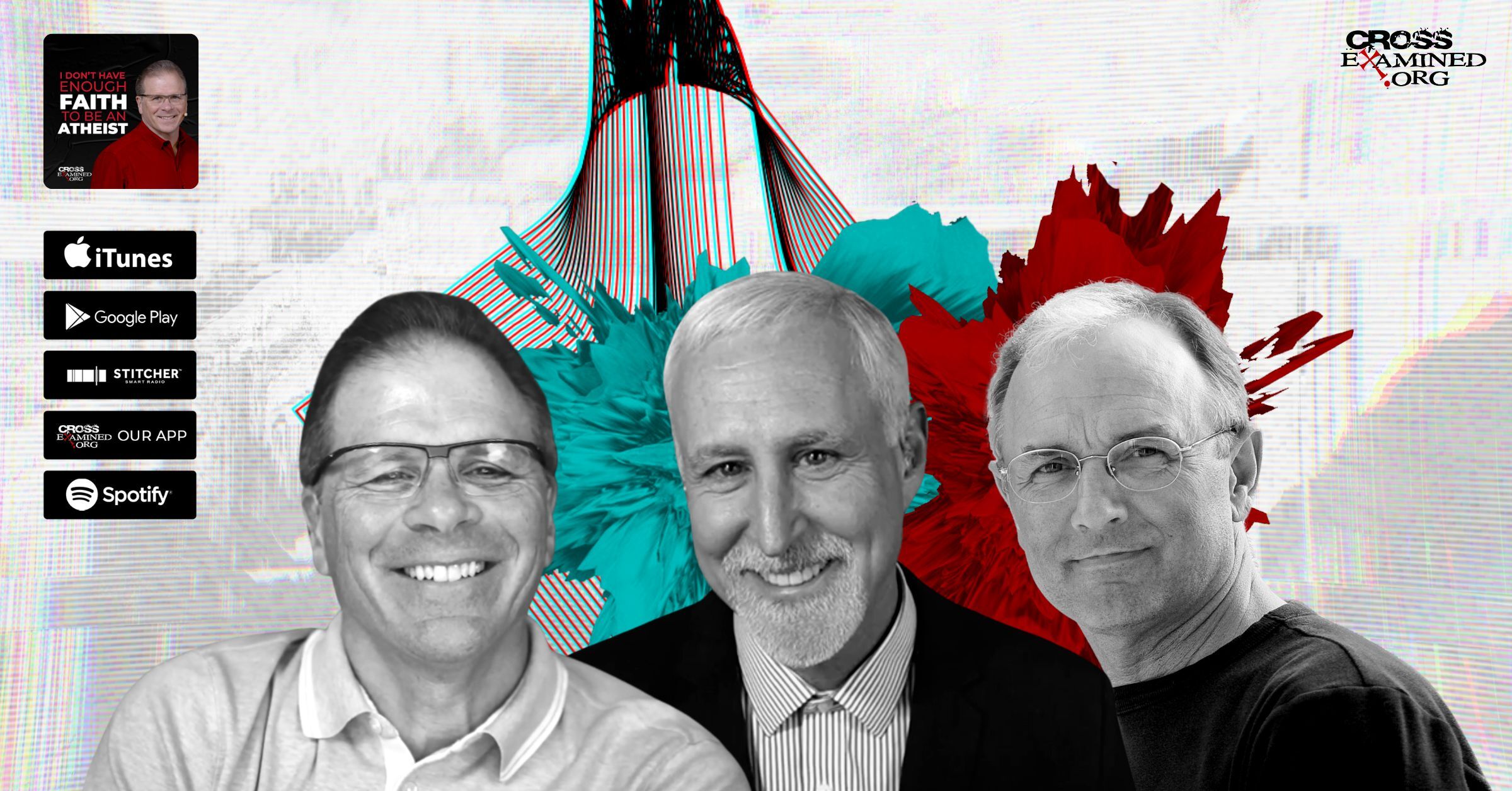Salvation in Christianity Vs. Salvation in Buddhism
By Melissa Dougherty
“Buddhism has much more to offer than Christianity does!”
“How do you figure? What you’re suggesting is impossible. It’s unattainable. Isn’t that the point?”
I was listening to two of my friends have a lively conversation about their beliefs, and that last sentence stopped my first friend cold in his words. He hadn’t thought of it like that before. Like many religions in the world, Buddhism has a moral, ethical and philosophical system that allows for many good works, and some promise a sort of “salvation” at the end. In this case, Nirvana is the ultimate goal for those practicing Buddhism.
Before I go on, I want to concede that there are many different sects of Buddhism that people ascribe to. For this reason, I will cover the religion’s main points that would be applicable for someone to call themselves a “Buddhist.”
What is Buddhism?
When someone thinks of Buddhism, they might think of a statue of a man with a big belly. Others might think of the story of its founder, Siddhartha Guatama, and the lessons he taught. Born in 600 B.C in Nepal, he sought a more simple life and devoted his life for a time to self-deprivation. Following a strict lifestyle standard, he sought enlightenment by adhering to intense meditation and extreme humility. The story goes that after he had “indulged” by having a bowl of rice, he went to meditate under a fig tree. He said he would stay there meditating until the end of his life or until he reached enlightenment. When morning came, he claimed to have achieved this goal. This was when he became the “Buddha.”
Buddhism is diverse and can be atheistic, pantheistic, or even nihilistic. Some might mistake Buddhism and Hinduism as being the same, but they are very different if not opposed in many ways to one another. There are universal beliefs that unite it as being under the umbrella of “Buddhism.” Many people admit that Buddhism’s teaching about salvation is somewhat nonsensical. The average person has to do a lot of mental gymnastics to wrap their head around the teachings. Buddha taught that salvation is obtained by letting go of all attachments and the release of the cycle of reincarnation. The goal is Nirvana. What Nirvana specifically is depends on which teacher you ask. It’s neither existence nor nonexistence, uncaused, and is the ultimate goal after enlightenment. Obtaining Nirvana means ultimate detachment and an ending to all suffering.
The Four Noble Truths
Siddhartha Guatama claimed to have discovered a “middle way,” a balance to live. According to him, enlightenment is not achieved by extremes. You cannot live in luxury or self-denial. He also discovered what’s called the Four Noble Truths. They are: 1- to live is to suffer. 2- Suffering is caused by attachment or desire. 3- You can eliminate suffering by eliminating all attachments. 4- This is achieved by following the Eightfold Path. According to the Buddha, the goal of ridding yourself of attachment can be attained only through a rigorous life of concentrated effort in following the Noble Eightfold Path, which is 1- the right view—understanding the truths of existence. 2- the right intention— being willing to achieve enlightenment. 3- the right speech. 4- the right action. 5- The right livelihood (being a monk.) 6- the right effort. 7- Proper meditation. 8- the right concentration— maintaining continuous focus.
This is a full-time effort. No pressure.
Buddhism Compared to Christianity
The basic formula in Buddhism is as follows: To live is to suffer. Suffering is caused by attachment. To eliminate suffering, eliminate attachment. Eliminate attachment by following the Eightfold Path. Sin is seen as ignorance, ultimately, and there’s a disconnect between the depravity of human beings. Jesus is seen as one of the Buddha’s, or an incarnation of “Christ Consciousness,” which the Buddha supposedly exhibited himself. They both were enlightened and taught us spiritual truth. It really comes down to that Buddhism is a philosophy that focuses on the way to live to become enlightened.
When people say that all religions in the world are the same, but we just worship God differently, it shows that they might not know a lot about religion, especially Buddhism. There is an uncompromising difference between these two belief systems, no matter how much people want to syncretize them. Christianity is opposed to Buddhism in almost every way, except perhaps the understanding that suffering is a problem. In Christianity, there are many beliefs that depart from Buddhism. Sin is part of human depravity. We need a Savior that was prophesied about in the Old Testament, trusting in Jesus for this salvation, evil is real, people are not “good,” God is personal, truth and reality exist, and there is an afterlife. Salvation in Christianity is exclusive, specifically in the atoning work on the cross. Jesus is not an Ascended Master, or “one of many Buddhas or Messiahs” as some New Age teachers would imply. The Bible, the historical document that records Jesus’ life, contradicts this idea.
There also seems to be a disconnect from ultimate reality within Buddhism that is in total disagreement with the teachings of Christianity. The teachings of Jesus are tethered to a tangible reality, whereas the teachings within Buddhism are contradictory. For example, the whole goal of Buddhism is to obtain Nirvana by letting go of all attachments. But isn’t the very thought and devotion to Nirvana an attachment in and of itself? Isn’t striving for enlightenment an attachment? Beyond that, there are many more self-defeating beliefs. It’s interesting to see how and why Buddhism holds silencing of the mind in such reverence: I would submit that critically thinking about these ideas defeats them
The Main Problem for Buddhism
Buddhism can offer many things to humanity, but one major flaw is that it cannot offer truth. If it cannot provide truth, it cannot offer you salvation. Truth is what corresponds to reality. If our beliefs do not correspond to reality, then they must be false. Suppose all suffering is caused by attachment, and to reach “salvation” is to release from all attachment by following the Eightfold Path. In that case, this is really no different than a works-based religion that leaves us empty and wondering why we’re not spiritual enough. Nirvana supposedly cannot be taught but only realized. If a Buddhist believes that Jesus obtained this, it would be interesting to see how it happened and compare it to what they have been taught about enlightenment. Gnostic teachings are closer to Buddhism than Christianity or anything that Jesus taught.
Ultimately, the practices of Buddism are unattainable. This is precisely why Jesus came.
If we’re to be looking at the world through the lens of suffering and why it’s here, then it would seem that Christianity, by far, has the best explanation for why this is the case. For the Buddhist seeking enlightenment, their life is devoted to seeking this out, and they are given impossible odds for it to be achieved. It’s only in trusting in Jesus’ work on the cross, knowing that it can never be obtained is when anyone will truly find the freedom that they have been seeking their whole life.
Footnotes
[1] Winfried Corduan, Neighboring Faiths: A Christian Introduction to World Religions, 2nd ed. (Downers Grove IL: InterVarsity, 2012), chap. 10, Kindle.
[2] Eckhart Tolle, The Power of Now: A Guide to Spiritual Enlightenment, (Vancouver CA: Namaste Publishing, 2004), pg 68.
[3] Walter Martin, Kingdom of the Cults, 6th Ed. (Minneapolis, MN: Bethany House, 2019), pg 511.
Recommended resources related to the topic:
Counter Culture Christian: Is There Truth in Religion? (DVD) by Frank Turek
Defending the Faith on Campus by Frank Turek (DVD Set, mp4 Download set, and Complete Package)
_____________________________________________________________________________________________________________________________________________________
Melissa Dougherty is a Christian Apologist best known for her YouTube channel as an ex-new ager. She has two associate’s degrees, one in Early Childhood Multicultural Education, and the other in Liberal Arts. She is currently pursuing her bachelor’s degree in Religious Studies at Southern Evangelical Seminary.











